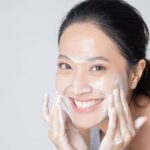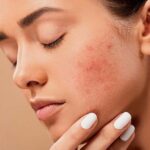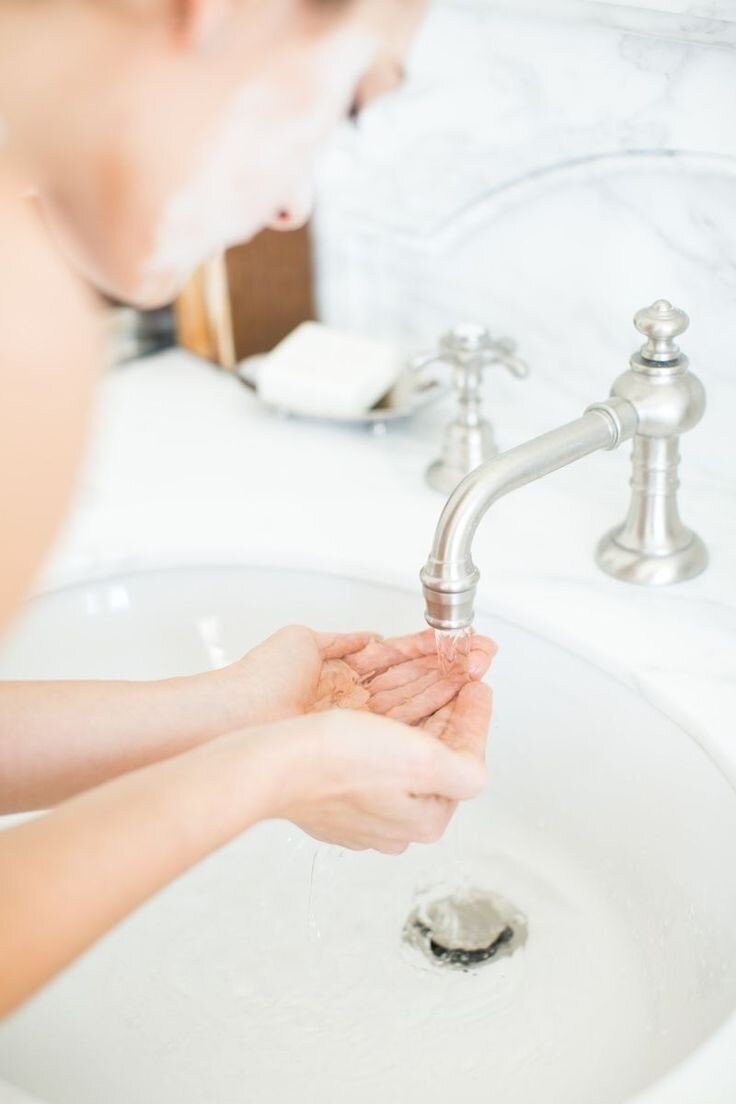
The temperature of the water used for facial cleansing is crucial. Using water that is too hot can cause skin issues, especially for those with sensitive skin.
1. Why You Should Avoid Washing Your Face With Hot Water
Master Nguyen Tien Thanh, a dermatologist and member of the Vietnamese Dermatological Society, highlights that using hot water to wash your face can lead to daily skin deterioration. He explains that hot water can cause redness and dilated blood vessels. It also upsets the natural oil balance, leading to dryness, excess oil production, and even acne breakouts.

Hot water strips away natural oils, leading to excess oil production and a shiny complexion.
Dermatologist Dr. Nguyen Xuan Quang agrees, stating that during the winter and rainy seasons, the colder and drier air can be uncomfortable. He cautions that using hot water to wash your face during these times can be detrimental, leading to skin imbalances, accelerated aging, and increased dryness or cracking.
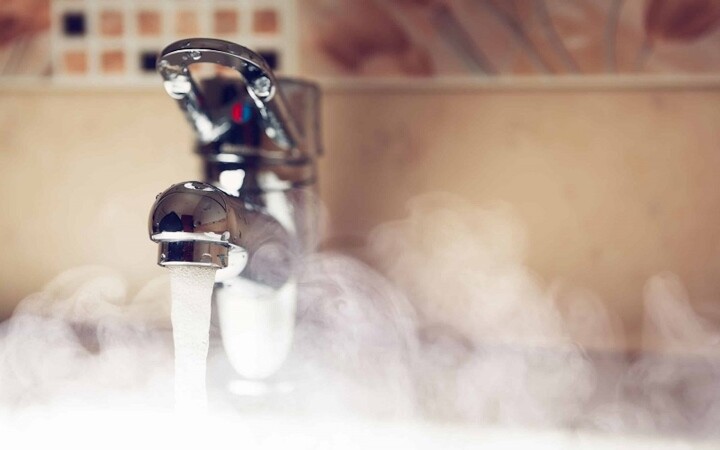
Continuing the habit of washing your face with hot water can make you look older.
2. So, Should You Use Cold or Hot Water to Wash Your Face?
Dr. Tien Thanh recommends using warm water to open your pores, followed by a gentle cleanser and a final rinse with cold water. This routine effectively cleanses the skin and tightens pores.
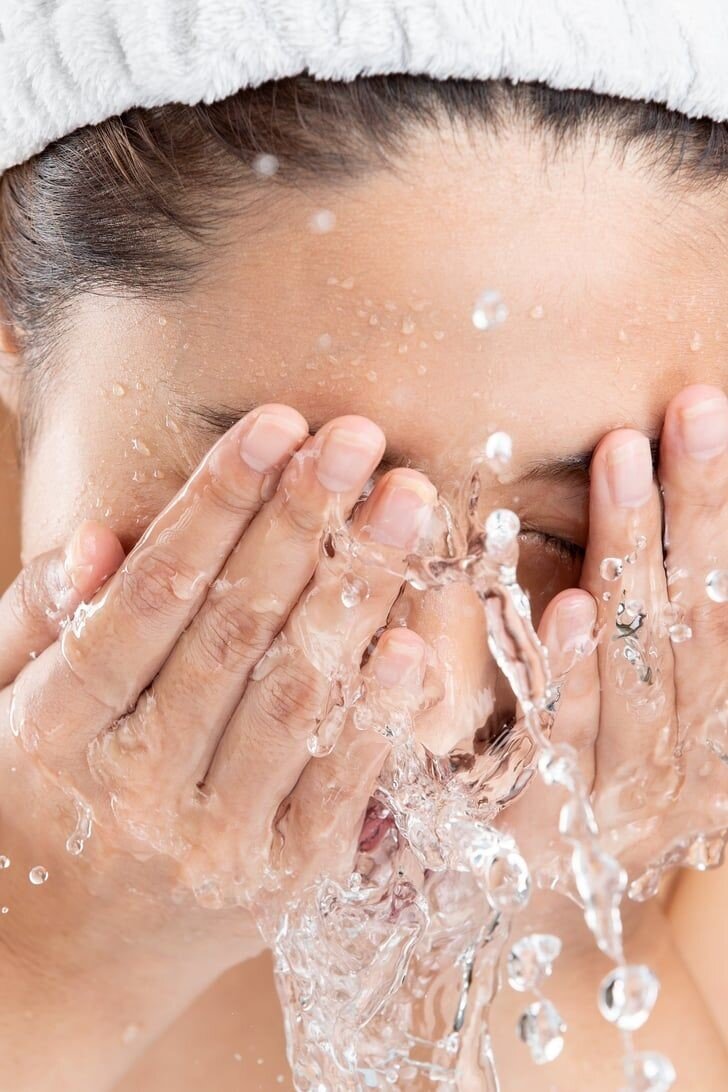
Switching from hot to warm water can make your skin feel more comfortable and help maintain its health.
Dr. Nguyen Xuan Quang suggests opting for cold water instead of hot. During cold days, using lukewarm water to wash your face is ideal, as it is gentler on the skin and won’t affect your overall health. Remember to moisturize your skin after cleansing, especially before stepping outdoors.
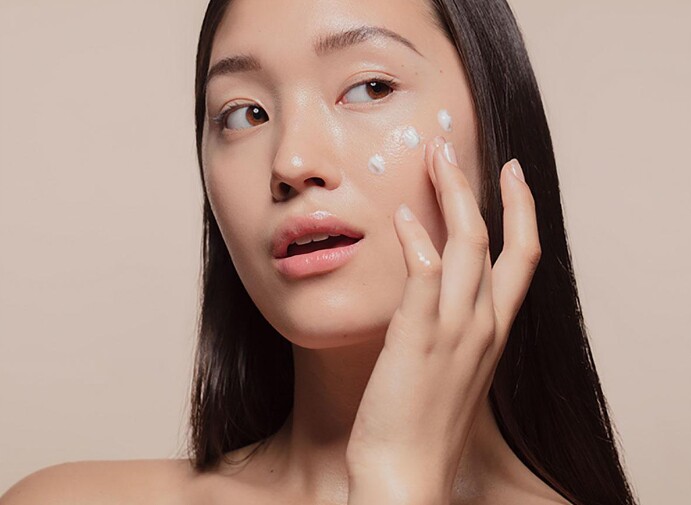
Always moisturize your skin after cleansing to maintain its hydration.
3. Ideal Water Temperature for Different Skin Types
Oily and Sensitive Skin: For oily and sensitive skin, use water at a temperature of 33-35°C (91-95°F). This will effectively remove dirt and excess oil without irritating the skin.

Oily and sensitive skin types should use water around 33-35°C to achieve a cleaner and more refreshed complexion.
Dry Skin: For dry skin, avoid using warm water as it can further dehydrate your skin. The ideal water temperature is 30-31°C (86-87°F). This temperature is gentle and won’t strip away too much moisture from your skin. However, avoid washing your face with warm water too frequently.

The ideal water temperature for dry skin is around 30-31°C, helping to maintain the skin’s hydration without causing discomfort.
Combination Skin: For combination skin, which is oily in the T-zone and dry on the cheeks, the ideal water temperature is 32-33°C (89-91°F). When cleansing, focus more on the T-zone to ensure all excess oil is removed without irritating the dry areas.

Combination skin benefits from water at 32-33°C, effectively removing excess oil without causing dryness or irritation.
In conclusion, to maintain healthy skin, it is best to wash your face with cold or lukewarm water, ideally below 35°C. Hot water can strip away natural oils, leading to dryness, irritation, and an uncomfortable, oily feeling. Take care of your skin and it will thank you!

























